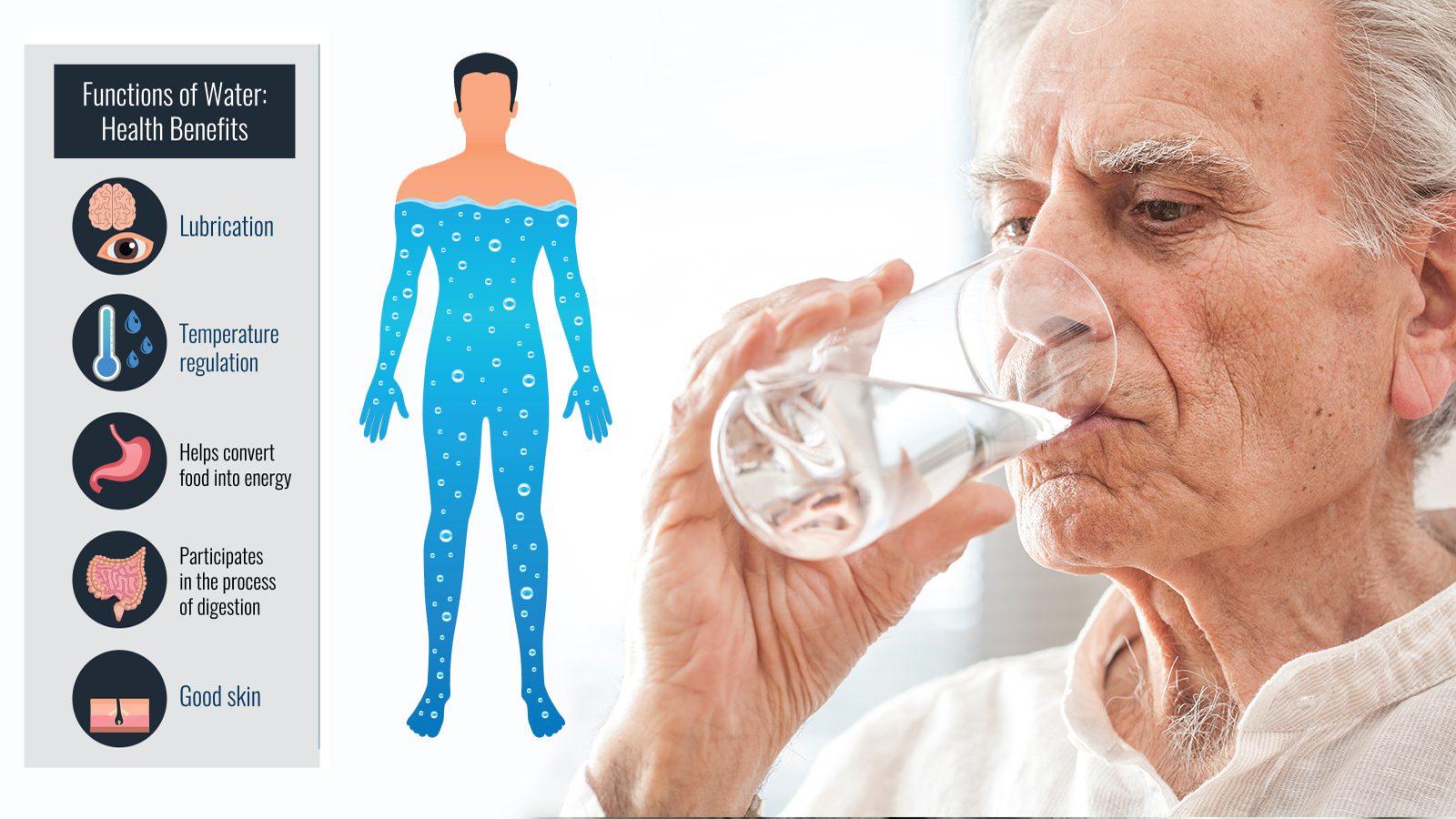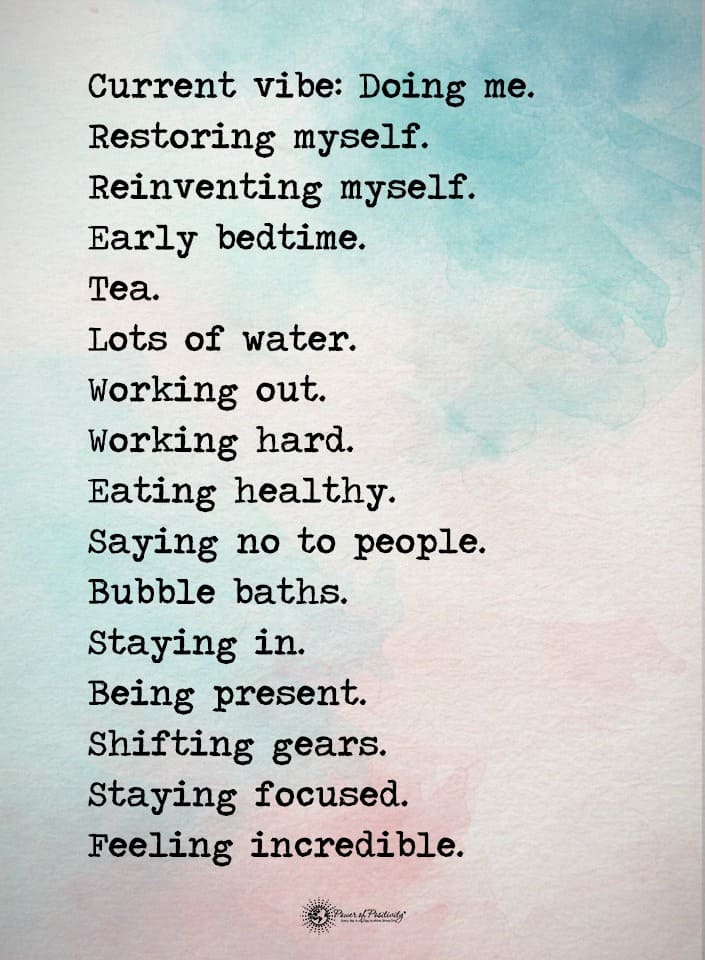Most people know the importance of drinking enough water to keep the body and mind functioning optimally. Water helps prevent dehydration and assists with body temperature regulation, joint lubrication, and waste elimination. In addition, it aids in balancing body fluids, controlling hunger, energizing muscles, and hydrating the skin. It also appears to increase longevity, says one study.
In summary, water makes life possible, but many people need to drink more of this vital beverage. According to the CDC, U.S. adults drank an average of 44 ounces of plain water from 2015-2018. However, this falls short of the recommendation to drink at least eight glasses of water daily.
That amount increases in hot, humid climates or for people doing strenuous exercise. Also, being sick with the stomach flu or having a fever increases the body’s hydration requirements. During both sickness and health, it’s clear that we couldn’t thrive or even survive without water. In addition to helping sustain life, studies show that this essential beverage may also increase longevity.
Research Now Confirms What Doctors Already Advised–Water Can Promote a Healthy Life and Increase Longevity
According to a National Institutes of Health study published in eBioMedicine, properly hydrated adults have superior health. They also tend to develop fewer chronic illnesses, like lung and heart disease, and outlive dehydrated adults.
Researchers compiled data from 11,255 adults over a 30-year timeframe for the study. They investigated the association between serum sodium levels – which increase when fluid consumption decreases – and several health measures.
They discovered that adults with the highest serum sodium levels were more likely to develop chronic conditions. The insufficiently hydrated adults also exhibited signs of advanced aging compared to those with normal serum sodium levels. Finally, adults with elevated sodium levels had a higher risk of premature death.
“The results suggest that proper hydration may slow down aging and prolong a disease-free life,” said Natalia Dmitrieva, Ph.D., a study author and researcher in the Laboratory of Cardiovascular Regenerative Medicine at the National Heart, Lung, and Blood Institute (NHLBI), part of NIH.
The Study About How Proper Water Intake Extends Lifespan
The study builds on the scientists’ prior research published in March 2022, which discovered a connection between higher serum sodium levels and increased heart failure risks. They utilized the Atherosclerosis Risk in Communities (ARIC) study, which includes thousands of U.S. adults, to support the conclusions from both studies.
The initial ARIC sub-study began in 1987 and gave researchers better insight into the various heart disease risk factors. The findings also improved clinical guidelines for treating and preventing heart disease.
For the most recent research, scientists analyzed health information that study participants shared during five doctor’s appointments. The first two medical visits occurred when volunteers were in their 50s. Participants were between ages 70-90 for their last three medical evaluations.
To obtain the most accurate findings, researchers excluded adults with high serum sodium levels or underlying health conditions at baseline. Next, they studied how sodium levels affected biological aging, which they assessed using 15 health markers.
These included measures like systolic blood pressure, blood sugar, and cholesterol, which provided information about participants’ cardiovascular, respiratory, metabolic, renal, and immune system health. Researchers adjusted for age, gender, race, smoking status, and hypertension.
The Results of the Study on Longevity and Hydration
They discovered that adults with higher serum sodium levels showed more significant signs of aging. For reference, normal sodium ranges fall between 135-146 milliequivalents per liter (mEq/L). To assess signs of aging, the scientists used indicators like metabolic and cardiovascular health, lung function, and inflammation.
For example, adults with serum sodium levels above 142 mEq/L had a 10-15% higher likelihood of being biologically older than their chronological age compared to ranges between 137-142 mEq/L. Furthermore, levels above 144 mEq/L correlated with a 50% increased risk of premature aging. Also, adults with sodium levels of 144.5-146 mEq/L had a 21% increased risk of early mortality compared to those in the normal range.
Likewise, adults above 142 mEq/L had up to a 64% elevated risk for developing chronic illnesses like heart disease, stroke, atrial fibrillation, and peripheral artery disease. They also had a higher risk of chronic lung disease, diabetes, and dementia. Not surprisingly, adults with normal serum sodium levels had the lowest risk of developing chronic conditions.
The Science Says: Drink More Water For Longevity
However, the researchers stressed that correlation doesn’t necessarily imply causation. They added that randomized, controlled trials are needed to confirm if adequate water intake slows aging, prevents disease, and increases longevity. But the study can still offer guidelines for the general public and help doctors advise their patients on proper health behaviors.
“People whose serum sodium is 142 mEq/L or higher would benefit from evaluation of their fluid intake,” Dmitrieva said. She added that most people could safely consume more fluids from water, juices, and fruits and vegetables to meet general recommendations. The National Academies of Medicine suggests that women drink around 6-9 cups (1.5-2.2 liters) of fluids, and men consume 8-12 cups (2-3 liters) daily.
However, those with underlying conditions might need to consult their doctor before increasing their water intake. “The goal is to ensure patients are taking in enough fluids, while assessing factors, like medications, that may lead to fluid loss,” said Manfred Boehm, M.D., a study author and director of the Laboratory of Cardiovascular Regenerative Medicine. “Doctors may also need to defer to a patient’s current treatment plan, such as limiting fluid intake for heart failure.”
Unfortunately, about half of the global population doesn’t meet the guidelines for daily water intake, according to research cited by the authors. This alarming statistic highlights the dire need for proper health education and public campaigns to increase awareness about the issue.
“On the global level, this can have a big impact,” Dmitrieva said. “Decreased body water content is the most common factor that increases serum sodium, which is why the results suggest that staying well hydrated may slow down the aging process and prevent or delay chronic disease.”
The Division of Intramural Research at NHLBI helped support the research. Research contracts from NHLBI, NIH, and the Department of Health and Human Services helped fund the ARIC study.
Final Thoughts on the Link Between Proper Hydration and Longevity
When most people guzzle down a cup of water, they don’t think about how it could help them live longer. However, scientists found proper hydration could extend lifespan, lower serum sodium levels, and reduce disease risk. We need water for every bodily function, but many people fall short of the recommended daily intake. However, carrying a reusable water bottle to work or school could help you meet or exceed these guidelines.
You’ll also feel refreshed and energized by increasing your water consumption, so give it a try. It will improve your well-being and add longevity to your life!


















